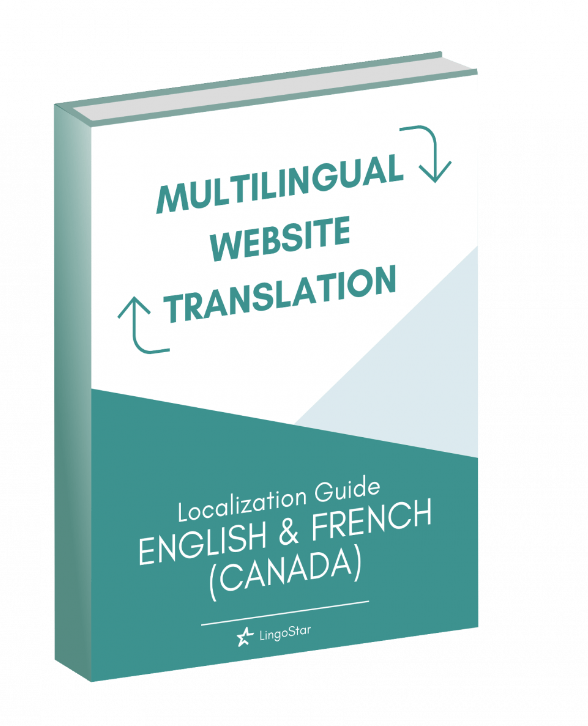Every year, thousands of students come to Canada in order to start, continue, or finish their studies. There are many Canadian schools, programs, and careers available for everyone. If you want to study in Canada, you’ll have to find the one that best suits you. You’ll also need to find out, ahead of time, what type of documents in English and French you’ll need to submit to the authorities.
Why study in Canada?
People worldwide consider that the quality of education in Canada is outstanding — from as early as elementary school to post-secondary studies. In fact, more than 25 Canadian universities feature in the World University Rankings. This is mainly due to their strong focus on research and development. What’s more, the Canadian government offers great support for research in many fields.
In terms of economy, studying in Canada is not as expensive as in other countries such as the US or the UK. Tuition fees in Canada might seem rather cheap due to the possibility of applying for a range of scholarships. The aim of these scholarships is to cut down your expenses.
Lastly, another reason why you should consider studying in Canada is its safe and peaceful environment. It is the sixth most peaceful country in the world.
The process of studying in Canada
Canada’s Post-Graduation Work Permit Program (PWPP) allows international students to stay and work in Canada for up to three years after completion of their graduation. Not only can you gain some work experience, but you can also apply for permanent residency after some time.
If you’ve decided to apply to study in Canada as an international student, here’s your next step: find out about other students’ experiences. Read posts or go on forums and get to know what it’s like to live here as an international student. Next, you should plan your studies. One thing you should know is that in Canada each province and territory has their own education system. Therefore, it’s important that you inquire into the education you are the most interested in.
The following step would be getting a study permit. The processing time varies depending on the country you’ll be coming from. A study permit is not the same document as a visa; it doesn’t have the power to let you officially enter the country.
Documents needed for a study permit and to study in Canada
Throughout the process of getting a study permit, as well as your visa, you must provide specific documents. Research online the documents you’ll need to gather, have translated and submit when applying for your permit. In many cases, the documents will need to be either in English or French. This means that you’ll be required to provide certified translations issued by Canadian certified translators. Such documents may include your birth certificate, diplomas, or transcripts from your previous studies.
Your school must provide you with a letter of acceptance. This will be proof that you have been accepted to study in Canada. A proof of identity is also needed: you must have a valid passport or travel document. Additionally, you must prove that you can support yourself. There are many documents you can use to do this.
Writing an explanation letter is also important. It gives you the opportunity to explain that you understand your responsibilities as a student and what your goals are. You can also explain why you want to study in Canada. In case you want to study in Quebec for longer than 6 months, you would also need a Québec Acceptance Certificate (CAQ). There are other documents you may need to submit. It’s crucial that all your documents are translated by a specialized or certified translator.
Certified or notarized translation?
Some authorities will require you to submit certified and notarized translations of your original documents. It’s of utmost importance that you understand the difference between a notarized and a certified translation in this situation.
Certified translations are issued by Canadian certified translators who are recognized by an official certified translator association in Canada. These certified translators provide accurate translations for your documents with their attested declaration that certifies that the documents have been translated by a professional. Any Canadian institution (immigration services, universities, vehicle associations, etc.) will accept these certifications. They serve as proof that the translator is fluent in both target and source languages and has accurately and professionally translated the documents.
Notarized translations, however, differ from the certified ones on certain criteria. What this type of translations do is fulfill the formal requirements of a certain institution. In this case, the identity of the translator is a fundamental element, since it ensures that the translator completed their work and provided accurate results and this is sworn by a certified translator in front of a Public Notary. So, we could say that notarized translations are an act of double security that ensures that the Public Notary confirmed the identity of the person that issued the certified translation.
In most cases, however, Canadian authorities do not require you to get notarization of certified translations. Simply, a certified translation issued by a recognized certified translator will be sufficient and does not require the second step of notarization. If you are unsure about what documents to certify or notarize, send us your translation inquiry via our website and we’ll be able to help you further.
Certified Translation Services LingoStar
Certified Translation Canada run by LingoStar Translations has been delivering high quality certified translations for over 18 years! All our certified translators have several years of experience. They will provide valid translations accepted by all Canadian governing authorities. The most popular certified translations we provide are driver’s licenses, criminal records, birth and marriage certificates, diplomas, and transcripts.
If you request a regular turnaround time, your project will take 3-5 business days plus 2-4 days mailing by Canada Express Post for up to 5 pages. For 6 to 10 pages, please allow 5-7 business days plus mailing. We can also issue a rush quote for an expedited translation if required. For a project of up to 5 pages, your project will take 1-2 business days plus mailing. For 6 to 10 pages, please allow 3-4 business days plus mailing.
If you would like to find out more, please request a free translation quote or email us at info@lingo-star.com. We’ll be happy to help you with your translation. Last, but not least, don’t forget to subscribe to our newsletter at the bottom of our website for news and information about what’s going on in the world of translation!
Are you looking to increase your sales in Canada?
Have you checked out our Localization Guide Canada – Multilingual Website Translation? This fantastic guide will provide you with practical advice on how to sell online in Canada. You’ll be able to translate your website into Canadian English and French. Find out how to in our ebook >>.


















